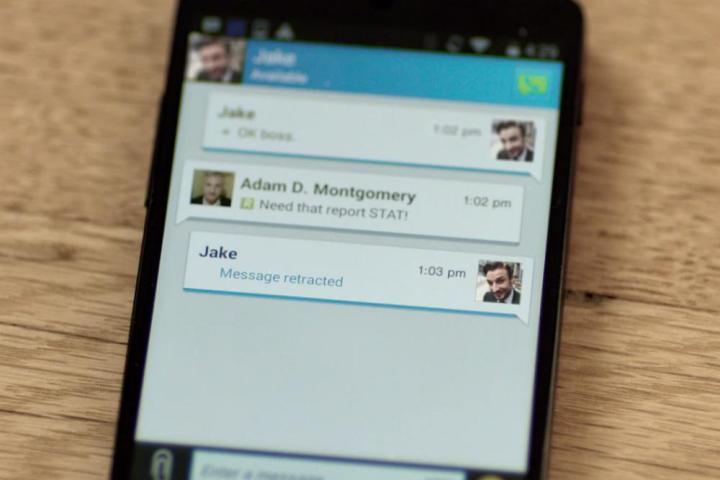
The number of downloads isn’t an accurate indicator of how many people actually return and continue to use the app.
The company tracked the usage of different messaging apps, with the data including Facebook, BBM, WhatsApp, Instagram, WeChat, Snapchat, and Twitter, among other messaging and social apps. The data was tracked through code installed on 75 million Android smartphones around the world, reports the Information.
Out of the 52 million Facebook users Quettra tracked, 98 percent of them continued to use the social network 90 days after they installed it. BBM, meanwhile, was right behind Facebook with 82 percent. The only other messaging service that retained more than 70 percent of its users after 90 days was WhatsApp with around 77 percent.
Unlike Facebook, BBM, and WhatsApp, however, every other service saw a significant dropoff after just one day. For example, out of the 19.4 million Twitter users Quettra tracked, only 59 percent of them continued to use it one day after installing it. After 90 days, only around 31 percent were still using the app. Twitter was lower than the average of all 22 Android messaging and social apps Quettra looked at. That’s sunshine and roses compared to Tumblr, however, which only retained 14 percent of the 1.4 million tracked users after 90 days.
Though not as significant of a dropoff, Instagram and WeChat retained 68 percent and 72 percent of its users one day after installation, respectively. After 90 days, however, those numbers dropped to just under 50 percent.
If there’s anything we can gather from these numbers, it’s that the number of downloads isn’t exactly an accurate indicator of how many people actually return and continue to use the service. For a business to thrive in the long run, it’s better to focus on the latter metric rather than the former, and while these numbers shouldn’t be seen as a bad sign for these services, it would be wise for many of them to start thinking of ways to retain more users.


